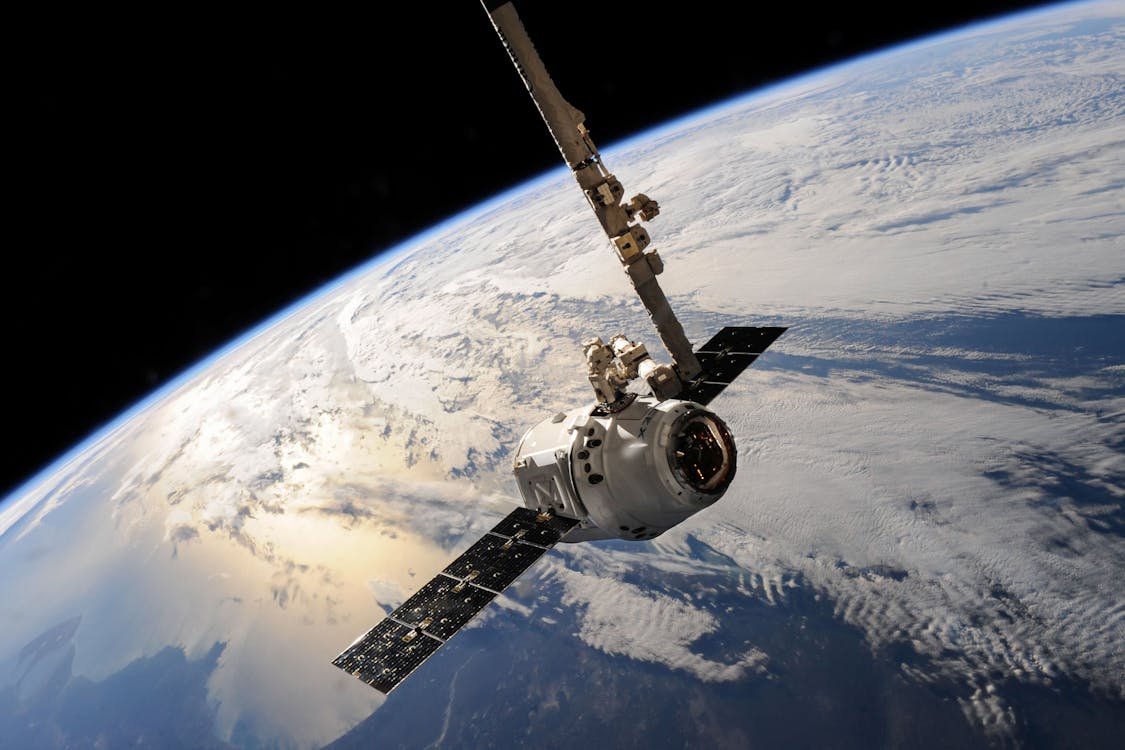
The Trillion-Dollar Space Economy: From Internet Satellites to Mars Colonies in 2025
By Tech-NestX Team | Category: SpaceTech & Innovation | Updated: 2025
For fifty years, space was a museum. We went to the moon in 1969, and then... we stopped. Space became the domain of governments, slow innovation, and astronomical costs.
But in 2025, the museum has closed, and the factory has opened.
We are living through the rapid commercialization of the cosmos. Space is no longer just about "exploration"; it is about "exploitation" (in the economic sense). From providing global internet to mining rare earth metals from asteroids, the "New Space Economy" is projected to hit $1 Trillion by the end of the decade.
1. The Game Changer: SpaceX Starship
To understand the space economy of 2025, you only need to understand one number: Cost Per Kilogram to Orbit.
In the Space Shuttle era, it cost roughly $54,500 to put 1kg of payload into space. Today, with the fully reusable SpaceX Starship, that cost has plummeted to under $100.
Imagine if you had to destroy your Boeing 747 after every flight. A ticket from London to New York would cost $1 million. By landing and reusing rockets, space travel becomes as routine as air travel.
Starship is the largest flying object ever built. In 2025, it is launching weekly, carrying massive cargo, fuel depots, and the infrastructure needed to build permanent bases on the Moon.
2. LEO Economy: The Internet of the Sky
Look up tonight. The "stars" moving in straight lines are not stars; they are satellites. The Low Earth Orbit (LEO) is now a mesh network of connectivity.

Starlink (SpaceX) and Project Kuiper (Amazon) have achieved global coverage in 2025.
- Digital Equality: Rural villages in Africa and ships in the middle of the Pacific now have high-speed, low-latency internet.
- IoT Connectivity: Autonomous shipping containers and agricultural sensors connect directly to satellites, bypassing expensive cell towers.
This connectivity is the backbone of the modern digital economy, generating billions in subscription revenue annually.
3. Space Tourism: Not Just for Billionaires?
In the early 2020s, space tourism was a joyride for tycoons like Jeff Bezos. In 2025, the market is maturing.
Companies like Orbital Assembly are constructing the first "Space Hotels" with artificial gravity (rotating rings). While still expensive (comparable to a luxury yacht purchase), the price is dropping rapidly. Sub-orbital flights (Virgin Galactic) offer 10 minutes of weightlessness for the price of a luxury car, opening the experience to a wider upper-class demographic.
4. The Return to the Moon: Artemis Base Camp
2025 is a pivotal year for the NASA Artemis Program. Unlike the Apollo missions, this time we are going to stay.
The goal is not just to plant a flag. The goal is water. The South Pole of the Moon contains water ice. This ice can be split into Hydrogen (Fuel) and Oxygen (Breathing). The Moon is becoming the "Gas Station" of the solar system, allowing ships to refuel there before heading to Mars.
5. Space Mining: The Infinite Resource
Why fight wars over resources on Earth when there is a floating rock in space containing more platinum than has ever been mined in human history?
Startups like AstroForge are testing robotic missions to refine materials in space. Moving heavy, polluting industries (like smelting) off-planet is the ultimate green technology vision for Earth.
Conclusion: The Next Great Filter
We are standing at the threshold of becoming a Multi-Planetary Species. The technology developed for space (solar panels, water purification, lightweight materials) ends up solving problems right here on Earth.
The Space Economy of 2025 is exciting, lucrative, and terrifyingly fast. The sky is no longer the limit; it is just the beginning.
🚀 From Space to Your Driveway
The same batteries powering rockets are powering the new wave of Electric Vehicles. See how they work.
Read: The Future of Transportation